Maritime Agencies
Carribean Nations Applaud Dangote Refinery, Charge African Nations To Stop Exporting Raw Materials.
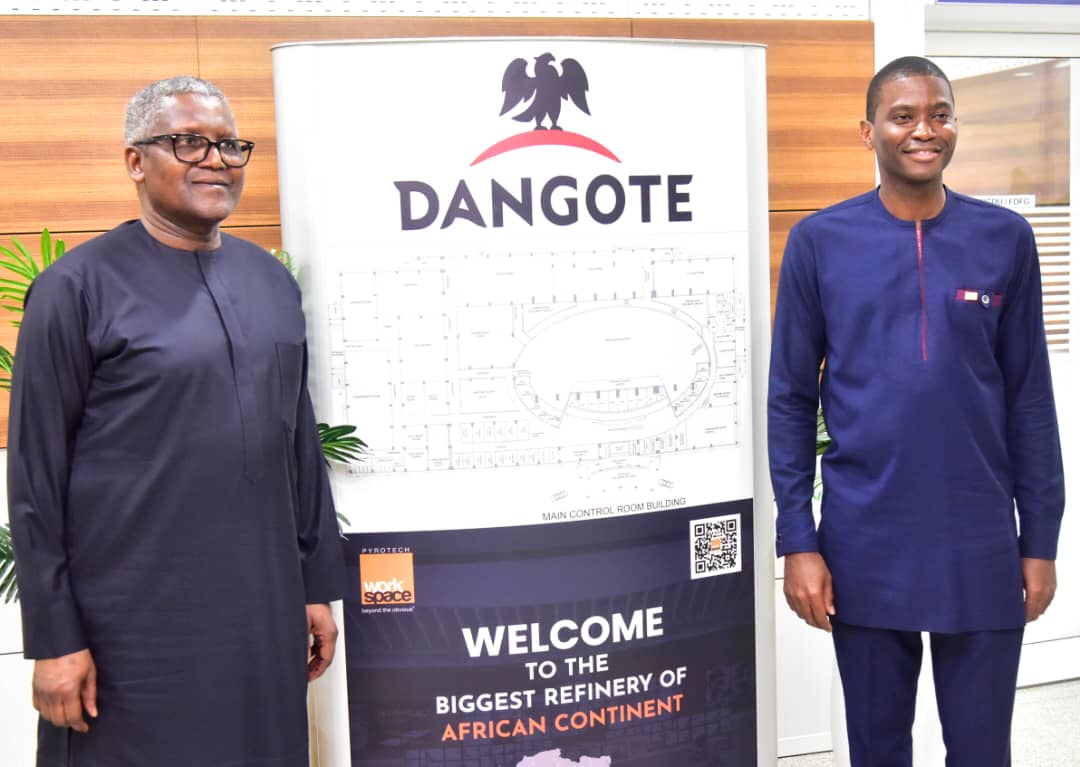
By Izuchukwu Ozoemena
Africa and developing countries have been charged to reverse the cycle of exporting raw materials and importing finished products from developed countries by embracing and investing in industries such as the Dangote Petroleum Refinery and Petrochemicals domiciled in the continent. This and similar establishments that process raw materials into finished products must be embraced and encouraged to blossom so as to save Africa from being a dumping ground and perpetuating a long-standing economic dependence on the developed nations.
Dickson Mitchell, the Prime Minister of Grenada and chairman, Caribbean Community (CARICOM or CC) – a political and economic union of 15 member states and five associated members throughout the Americas, The Caribbean and Atlantic Ocean, disclosed this, Thursday, at the Dangote Petroleum Refinery and Petrochemicals complex in Ibeju Lekki, Lagos.
Mitchell who was championing the efforts of Carribean countries desirous of partnering with Dangote Group in cement and fertilizer production, referred to Dangote Petroleum Refinery and Petrochemicals as a significant investment in industrialisation and manufacturing needed by developing countries for their technological and industrial growth.
It is through this type of investment, he noted, that Africa and the developing countries can reposition themselves industrially, process natural resources available in the continent, market finished products locally and beyond to the advantage of their individual economies while creating employment and broadening the continent’s foreign exchange earnings.
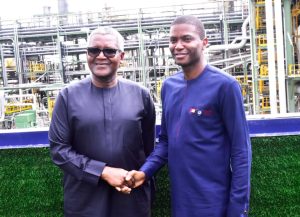
Mitchell said the refinery is a tribute to the President of Dangote Group, Aliko Dangote and his vision not just for Nigeria but Africa as a whole.
“This investment is a tribute to Dangote and his remarkable vision. It is the first of its kind in Nigeria and Africa, symbolising what the developing world needs: significant investment in industrialisation and manufacturing. This is an incredible achievement and a testament to Mr. Dangote’s vision, not just for his company, but for Nigeria and Africa as a whole.
Dangote, he stated, exemplifies what an African leader should be.
“We need not just political leaders, but business leaders who are willing to invest in Africa, particularly in manufacturing and industrialisation. We must ensure that we don’t continue to export our raw materials to the developed world where they can be turned into sophisticated products and sent back to us. We need to reverse that cycle; it is the only way to grow the wealth of Africa and the developing world.”
” Additionally, we need to support this with training and invest in job opportunities,” he said.
Applauding the sophistication and automation at the refinery, the Prime Minister expressed optimism for Nigeria’s future, especially given the number of young Nigerians trained and working at both the refinery and fertiliser plants. The $20 billion refinery, the largest private investment in Africa, stands out for its team of young professionals, predominantly aged between 26 and 28, most of whom hold advanced degrees and were educated in Nigeria”.
“It has been a wonderful experience to witness the shared skills, depth of sophistication, and automation here. Seeing so many bright young Nigerians, particularly in the laboratories, is truly inspiring. I believe this bodes well for the future development of Nigeria,” he added.
Mitchell stated that the Caribbean Community would be exploring partnership opportunities with the Dangote Group to enhance its economy.
“One of the reasons I am here is to pursue synergies and partnerships between the diaspora and Africa, particularly in areas such as the refinery, cement, and fertiliser. We believe there are fantastic opportunities to develop partnerships between the Caribbean and Africa,” he added.
On his part, Dangote described the visit as symbolic, noting that many Caribbean countries are beginning to discover crude oil and are exploring opportunities to build their own refineries. This would help them address the challenge of exporting crude while importing refined petroleum products at high costs.
“The visit shows that many countries are proud of what we have been able to achieve because a lot of countries have been unable to deliver their refineries. It shows their pride in seeing a Black person like them at the Caribbean, although I am from Nigeria, succeed. For them, this is a dream, especially as many Caribbean countries are beginning to discover oil but still depend largely on exporting crude while importing petroleum products, which is costlier than in America. Their dream is to set up a refinery—perhaps not of this size—but one that would cater to their people,” he said.
Africa’s wealthiest man emphasized that the company is looking for partnerships in the Caribbean not only in petroleum products but also in cement and fertilizer production. He mentioned ongoing discussions about importing crude from these countries while supplying them with refined products.
“There are numerous partnerships in place. He is not only the Prime Minister of Grenada but also the Chairman of the Caribbean Community (CARICOM). We are exploring collaboration in areas such as cement and petroleum, including the possibility of buying crude from them while selling some of our petroleum products to them. We already export to the U.S., Mexico, and other regions, so there is significant collaboration we are looking to develop between us and them.”
The 650,000 barrels per day (bpd) Dangote Oil Refinery—the largest single-train refinery in the world—is designed to process a wide variety of crude oils, including those from Africa, the Middle East, and US Light Tight Oil. It conforms to Euro V specifications and is built to meet stringent standards set by the US Environmental Protection Agency (EPA), European emission norms, the Department of Petroleum Resources (DPR), and the African Refiners and Distributors Association (ARDA).
The refinery has the capacity to satisfy 100% of Nigeria’s demand for petrol, diesel, kerosene, and aviation jet fuel, with additional surplus available for export.
Maritime Agencies
MARAN Breakfast Meeting: Nigeria – China Currency Swap Deal Will Favour Trade, says CBN.
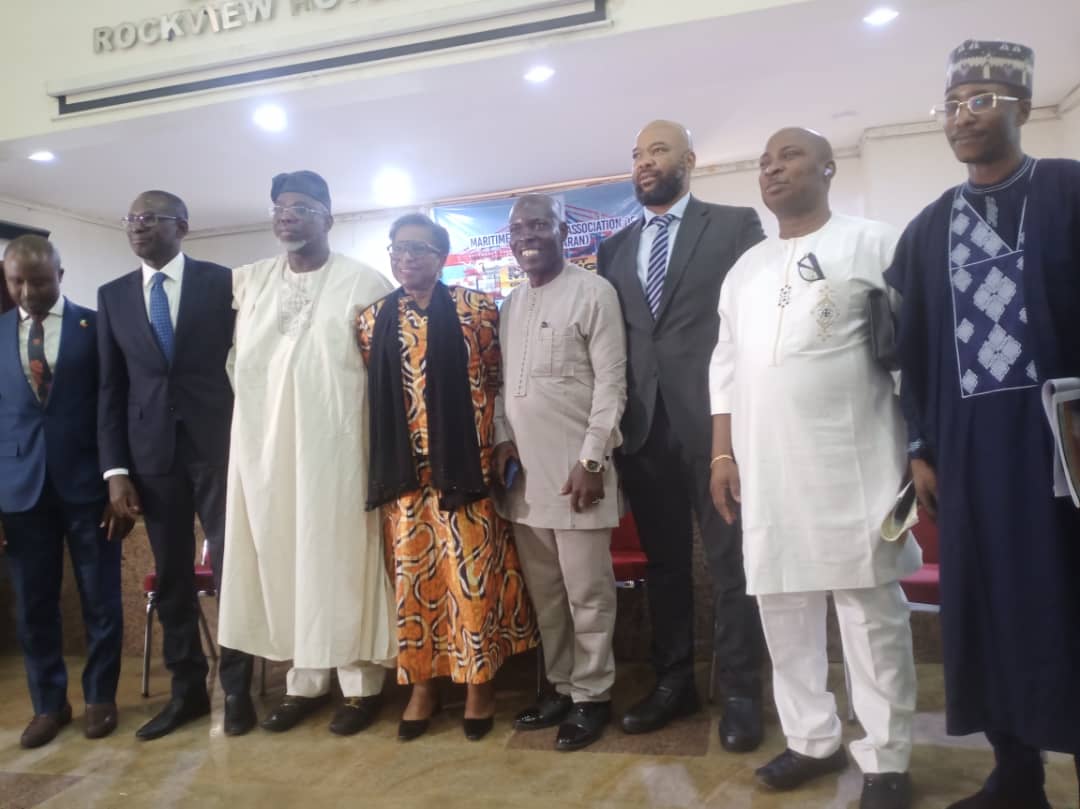
By Izuchukwu Ozoemena
The Central Bank of Nigeria (CBN) says a Nigeria-China currency swap deal has the potential to impact on Nigeria’s maritime industry by reducing shipping costs, enhancing trade efficiency, and easing foreign exchange pressure.
CBN Governor, Mr. Olayemi Cardoso, stated this in Lagos, Tuesday, while speaking at a stakeholders’ breakfast meeting organized by the Maritime Reporters’ Association of Nigeria (MARAN).
He explained that the agreement originally signed in 2018 and renewed in December 2024 enables Nigerian and Chinese businesses to conduct trade directly in Naira and Yuan (the Chinese currency), thus, bypassing the U.S. dollar.
Cardoso who was represented by Anthony Ogufere, the Special Adviser on Finance and Strategy, stated: “The swap agreement simplifies the settlement of trade transactions in local currencies and reduces the pressure on Nigeria’s dollar reserves. This, in turn, lowers the cost of doing business and enhances the competitiveness of Nigerian trade.”
The CBN Governor informed that by the end of 2024, China had become Nigeria’s largest trading partner, accounting for about 35% of total imports and reaching a trade volume of $11.58 billion. He added that the maritime sector, which handles the majority of Nigeria’s import and export activities, stands to benefit immensely through faster port clearance, improved trade finance instruments, and direct shipping links such as the Lekki Deep Sea Port—a Chinese-backed infrastructure project under the Belt and Road Initiative.
The CBN Governor, however, acknowledged that several challenges still hinder the full potential of the currency swap framework. Chief among them is Nigeria’s significant trade imbalance with China and the limited adoption of yuan-denominated transactions by Nigerian businesses. He called for greater sensitization, policy coordination, and efforts to expand non-oil exports to China.
Also speaking at the event, Mr. Martins Olajide, a representative of the Nigeria-China Strategic Partnership, offered a more cautious outlook. He noted that while the swap deal provides short-term relief and smoother trade operations, it is not a sustainable solution to the naira’s persistent depreciation.
Describing the swap arrangement as “swapization,” Olajide warned that Nigeria’s economic vulnerability and dependence on imports—especially from China—undermines the true impact of the agreement. He emphasized the need for structural reforms, particularly in industrialization, value addition, and local production.
“Without these changes, the swap deal may only reinforce economic dependence on China without solving the underlying issues,” he warned.
In his opening remarks, the Chairman of the event and Chairman of the Customs Consultative Council (CCC), Aare Akeem Olarenwaju, decried the volatility of the naira-dollar exchange rate as a major cause of the skyrocketing cost of goods in Nigeria. He called for greater public awareness of alternative currency options like the Chinese yuan.
“You can’t determine the price of goods within a few hours due to constant exchange rate changes. Today it’s ₦1,600 to a dollar, and in the next few hours, it could be ₦1,700 or ₦1,500. It’s the common people who suffer the most,” Olarenwaju lamented.
He commended the organizers for opening up conversations around trade, currency, and maritime development, urging media professionals to help educate the public on alternatives that could reduce the nation’s dependence on the U.S. dollar.
Earlier in his welcome address, MARAN President, Mr. Godfrey Bivbere, reaffirmed the association’s commitment to promoting dialogue on key economic issues. While acknowledging the swap deal’s promise in reducing transaction costs and enhancing trade efficiency, Bivbere stressed the need for a balanced discourse.
“We are not only here to applaud progress but also to interrogate policy. We must understand both the positive impact and the underlying risks associated with China’s expanding economic footprint in Nigeria,” he said.
Bivbere urged stakeholders across the maritime, trade, and financial sectors to approach the Nigeria-China currency swap with critical insight, noting that sustainable benefits would only come through policies that protect national economic interests while encouraging growth and competitiveness.
Maritime Agencies
TINCAN CUSTOMS: Comptroller Onyeka Harps on Transparency, Appreciates Role of ICPC, ACTU.

By Izuchukwu Ozoemena
The Tin Can Island Port Command of the Nigeria Customs Service, in collaboration with the Independent Corrupt Practices and Other Related Offences Commission (ICPC), last Friday, hosted a training lecture on Transparency and Accountability in Public Service.
The session which had in attendance officers from various units, as well as representatives from the ICPC and the Anti-Corruption and Transparency Unit (ACTU) offered an opportunity for the Customs Area Controller,
Comptroller Frank Onyeka, to acknowledge and appreciate the vital role of ICPC and ACTU in promoting transparency.
According to him, the Nigeria Customs Service has in place robust mechanisms to detect and discipline corrupt officers. “Discipline, transparency, and accountability are non-negotiable values in our operations,” he remarked.
The session was introduced by Assistant Comptroller Owoniyi, Coordinator of ACTU in Customs Zone A, who gave a brief preamble and reaffirmed the unit’s dedication to building an ethical culture within the Service.
Mrs. Mary Omonoyan, Guest Speaker from ICPC’s Department of Public Enlightenment and Education, delivered a compelling lecture on the necessity of transparency and accountability in public offices. She emphasised that public trust is built on openness, and that ethical behaviour is key to efficient governance.
Also speaking at the event, the Deputy Director in charge of operations in the Lagos office of ICPC, Dr. Florence Bari addressed the far-reaching effects of corruption in the public sector, with particular focus on lateness to duty and unethical practices in public procurement. She urged officers to serve with integrity, stressing that corruption undermines public service delivery and weakens institutional credibility.
The lecture concluded with an interactive session, encouraging officers to share ideas and strategies for strengthening transparency within their departments.
This initiative reflects the shared commitment of Tin Can Island Port Command and ICPC to entrench accountability and ethical standards in public service.
Maritime Agencies
All Roads Lead To Apapa For MARAN’s Breakfast Meeting on Nigeria – China Currency Swap Deal
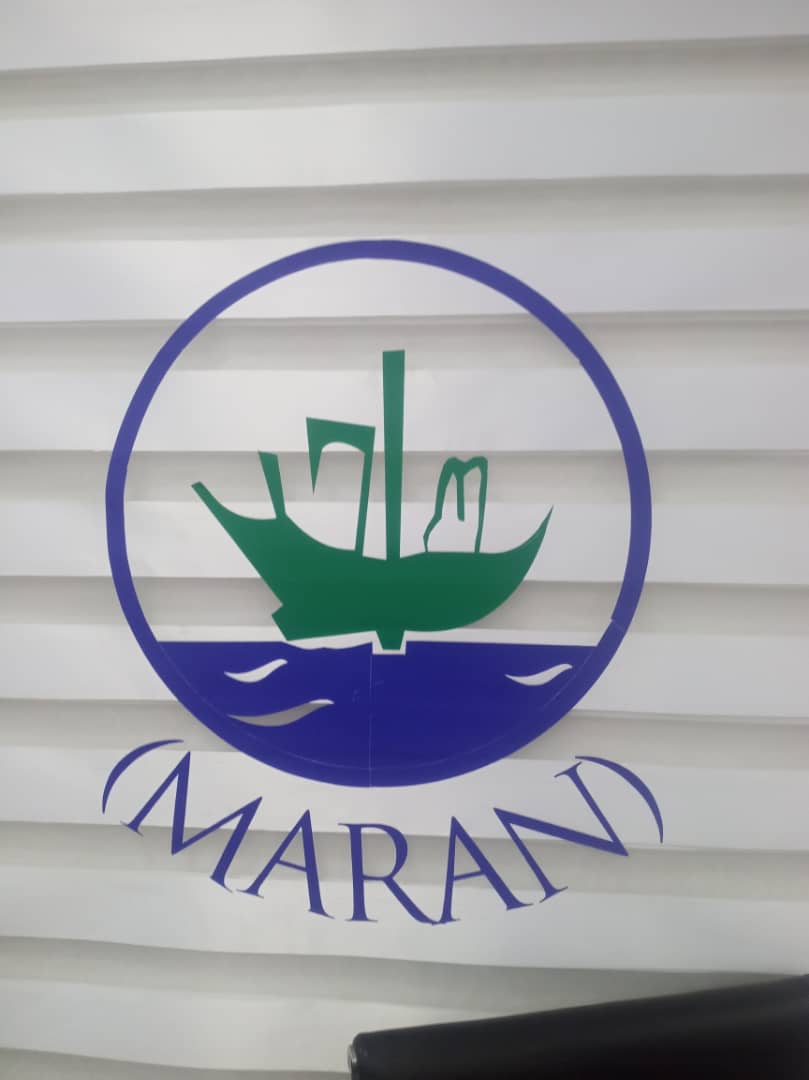
By Izuchukwu Ozoemena
The much-publicized Nigeria- China Currency Swap Deal Breakfast Meeting on the theme “Navigating the Nigeria-Peoples Republic Of China Currency Swap: Opportunities and Challenges for Import, Export and Maritime Business” takes place
on Tuesday, April 15, 2025 by 10 at the Rockview Hotel, Apapa, Lagos.
In a reminder by the Maritime Reporters Association of Nigeria (MARAN), the host, its
President, Mr. Godfrey Bivbere, said the event will attract participants from the government and private sector as well as the Chinese Embassy in Nigeria.
Also, the Nigeria-China Strategic Partnership, importers, exporters, maritime operators and trade organizations have signified readiness to attend.
Mr Bivbere said that MARAN is hosting the Breakfast Meeting in fulfillment of her role as a watch- dog in the maritime sector and to ensure that Nigerian businessmen take full advantage of the matter to be discussed.
The Nigeria-China currency swap aims to facilitate bilateral trade by providing Naira liquidity to Chinese businesses and Yuan liquidity to Nigerian businesses, thereby reducing reliance on foreign currencies for transactions.
The meeting, Mr Bivbere said, would provide a platform for critical stakeholders in the import and export sectors, policymakers, and government to examine the implications of the currency swap deal, especially in the face of the fluctuating value of the US dollar and its impact on imports.
It will foster better understanding of the currency swap deal and its impact on stakeholders involved in import, export and maritime businesses.
Meanwhile, the Central Bank of Nigeria and the Federal Ministry of Finance and the Chinese Embassy have confirmed they will attend.
Aare Hakeem Olanrewaju, event Chairman and Chairman of the Customs Consultative Council, the Association of Nigerian Licensed Customs Agents (ANLCA), and other major stakeholders have also confirmed they are set to attend.
The breakfast meeting promises to provide the necessary insights for stakeholders to navigate the opportunities and perceived challenges in the currency swap deal.
-
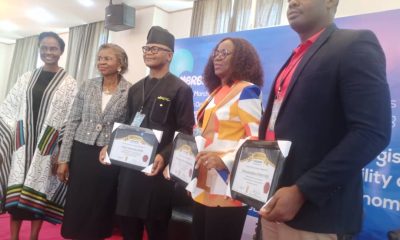
 Maritime Agencies3 weeks ago
Maritime Agencies3 weeks agoZoe Maritime Breakfast Meeting: NCDMB, NIWA, LASWA Discuss Maritime Logistics, Sustainability of Ocean Economy.
-

 Maritime Agencies3 weeks ago
Maritime Agencies3 weeks agoANTI-SMUGGLING: Kebbi Customs Generates N13.3M In A Month, Confiscates Contrabands Worth N84.2 M.
-
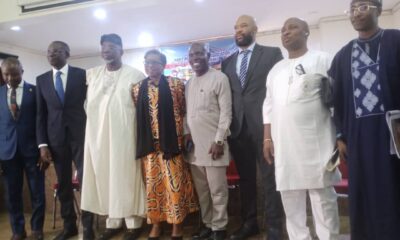
 Maritime Agencies1 day ago
Maritime Agencies1 day agoMARAN Breakfast Meeting: Nigeria – China Currency Swap Deal Will Favour Trade, says CBN.
-
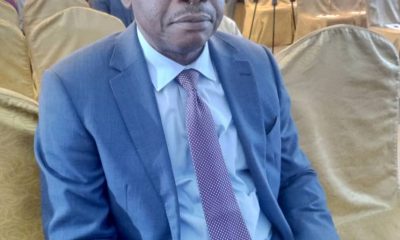
 Maritime Agencies3 weeks ago
Maritime Agencies3 weeks agoMAN, Oron, Sponsors Inland Waterways Safety Awareness Campaign, Donates Life Jackets.
-
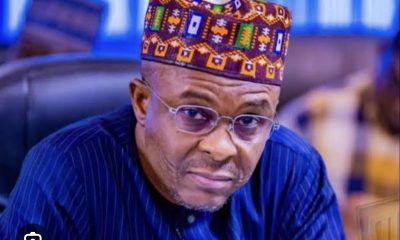
 Maritime Agencies1 week ago
Maritime Agencies1 week agoEnugu Trade Fair: NPA MD Markets Agency’s Simplified Export Processes That Favour Investors.
-
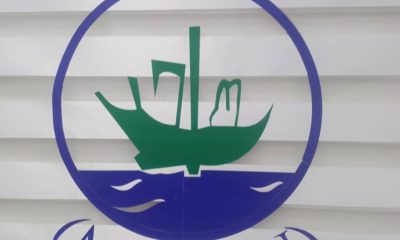
 Maritime Agencies6 days ago
Maritime Agencies6 days agoAll Roads Lead To Apapa For MARAN’s Breakfast Meeting on Nigeria – China Currency Swap Deal
-

 Maritime Agencies1 week ago
Maritime Agencies1 week agoQ1, 2025: Tincan Island Port Customs Collects N347bn, Breaks Record.
-

 Maritime Agencies3 weeks ago
Maritime Agencies3 weeks ago‘OPERATION WHIRLWIND’: Customs Renews Commitment to Tackling Smuggling, Hauls Largest PMS Seizure in Kebbi.
























